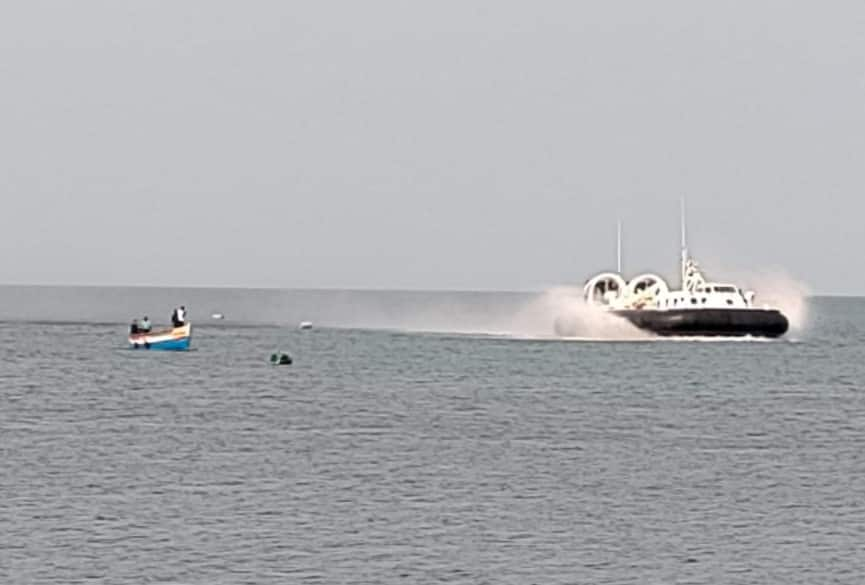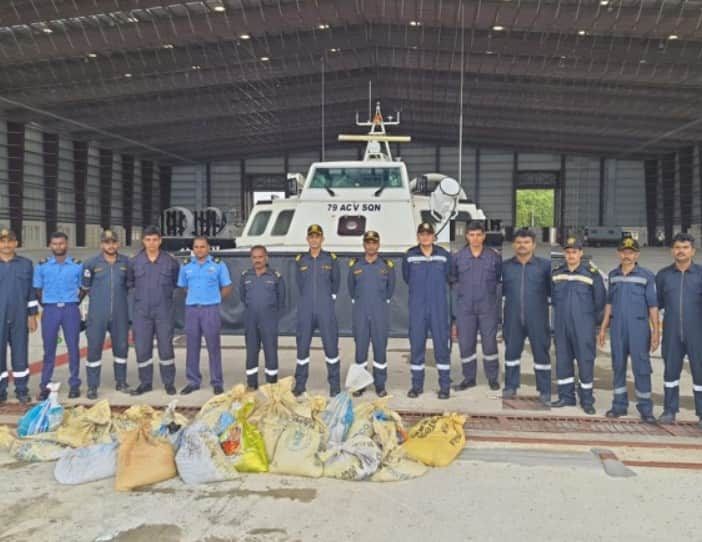600 kg sea cucumber worth Rs 3 crore seized by Indian Coast Guard
Based on a tip-off, the ICG team at Mandapam in the Ramanathapuram district tracked the suspected vessel and laid a cordon to block its escape.
- Indian Coast Guard has seized 600 kg of sea cucumber from a small boat in Tamil Nadu.
- Over 30 gunny bags of sea cucumber were recovered.
- Boat along with seized sea cucumbers was brought to Mandapam.
Trending Photos
)
New Delhi: An Indian Coast Guard team in Tamil Nadu seized 600 kg of sea cucumber from a small boat that was involved in smuggling. Based on a tip-off, the ICG team at Mandapam, Ramanathapuram district, tracked the suspected vessel and laid a cordon to block its escape.
Subsequently, the boat was found to be anchored off Uchhipalli, Ramanathapuram on Tuesday (October 19, 2021) afternoon.

Coast Guard teams that rummaged the vessel recovered 31 gunny bags of sea cucumber that weighed 600 kgs. The boat along with seized sea cucumbers was brought to Mandapam and handed over to the Forest Department Officials.
The value of seized sea cucumbers is said to be around Rs 3 crore.

Sea cucumbers, notably, are an important constituent of the marine ecosystem as they play a major role in maintaining the health of the ecosystem. In India, sea cucumber is treated as an endangered species listed under schedule 1 of the Wildlife Protection Act of 1972.
By excreting inorganic nitrogen and phosphorus, sea cucumbers enhance the productivity of benthic animals - those living on the ocean floor. One of the by-products of the sea cucumber's digestion of sand is calcium carbonate, a key component of coral reef.
To survive, coral reefs must accumulate calcium carbonate, and thus sea cucumbers play a vital role in their preservation. Sea cucumbers also maintain the transparency of seawater by eating sewage. Feeding and excretion by sea cucumbers also increase alkalinity, which counteracts ocean acidification. Illegal harvesting and overexploitation of these animals leads to poorer sediment health, reduces nutrient recycling and impacts biodiversity.







)
)
)
)
)
)
)
)
)
)
